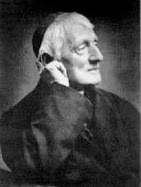
Many of you may already be familiar with the book, Why Catholics Can't Sing, by Thomas Day. It is a humorous, and informative, look at the often sad state of liturgical music in the post-Vatican II American Catholic Church. When my husband and I first began attending Mass at our local parish, we were bewildered and somewhat dismayed at times by both the lack of congregational singing and the often inappropriate music selections for the Mass. This book helped us put things in perspective. Although some reviewers criticize Day for being a bit too hard on the Irish, in my opinion his analysis is less concerned with assigning blame than with offering constructive criticism and practical suggestions for improvement.
Thanks to Jeffrey Tucker, managing editor of Sacred Music magazine and editorial VP of the von Mises Institute, now we have even more helpful suggestions for choosing liturgical music that enriches the Mass rather than distracting from it. His new book, Sing Like a Catholic (see link to the right), is intended to re-introduce Catholics – laymen as well as musicians – to existing resources that will help bring order out of the musical chaos that defines the experience of many modern Catholics. In his article on the subject at InsideCatholic.com, he makes the following observation about the current situation:
For several generations, what was originally permission to sing “other suitable songs” apart from the ritual itself has mutated into a kind of musical nihilism that denies that anything should be called universally appropriate or inappropriate. It is widely believed that, so long as people more or less like it, it can and should be sung or played.
What this has led to is not universal satisfaction with music at Mass, but rather the opposite. One never knows for sure what one will get on Sunday. Catholics are good sports, so they do their best to make a game of it. Will it be the aging hippy Mass, the breathy teen-pop Mass, the pseudo-Broadway Mass, the lone-cantor-plus-guitar Mass, the ethnic parade? The instability of it all becomes a kind of bonding point between us.
He goes on to describe the missing element (which forms the thesis of his book): "both a lack of direction and a lack of any fixed ideals."
As he goes on to point out, this confusion is entirely unnecessary:
The music of the Roman Rite has been part of the structure of the Mass for as long as 1,500 years, and the roots trace to apostolic times. It still would be part of our practice were it not for the fact that we have lived through one of those periodic ruptures that afflict the Church.
However, there is no reason for it to last. The beginnings of clarity come from looking at the actual music attached to the Mass, which you can do by picking up the Gregorian Missal.
He concludes by citing a criticism from one of his musical colleagues to the effect that the book is a waste of time, since the entire point is to point out what Catholics should know already – that the core music of the Mass is the Graduale Romanum (Roman Gradual). As Mr. Tucker rightly points out, if this were widely known there would be no need for books like his. But it is not widely known; it has been largely forgotten. This book can help remind us of that neglected treasury of Catholic liturgical music.






No comments:
Post a Comment